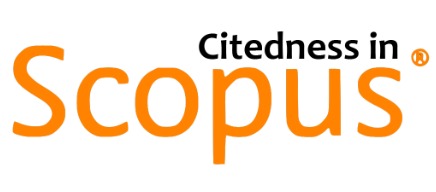Teams Games Tournament (TGT) Cooperative Learning Model Application to Improve Ecosystem Learning Outcomes for 5th Grade Students
Keywords:
Learning outcomes, Natural Science, Times Games TournamentAbstract
Teachers posed an important role in the classroom as a crucial factor in increasing students' curiosity and attention in learning. However, there are indications that so far, the teacher has been using the same learning model for all lessons, delivering lessons too fast and not systematically, and the lack of guidance in learning. This causes students to have less opportunity to develop their potential. Another impact is that students become passive in learning science so that student learning outcomes and activities decrease. Therefore, this study seeks to improve student learning outcomes through the application of the Times Games Tournament (TGT) cooperative learning model in Ecosystem learning. The research was carried out in two improvement cycles using natural science ecosystem material. The results showed that student learning outcomes increased, in the pre-cycle the students' scores were ≥ 70, 43%, in cycle 1 students' mastery scores were ≥ 70, 54%. Meanwhile, in the second cycle, students' mastery scores ≥ 70 increased to 89%. It can be concluded that the use of the Times Games Tournament (TGT) method can improve learning outcomes for the 5th-grade students in class A, Metta Maitreya Primary School Pekanbaru, Marpoyan Damai District, Pekanbaru City.
References
Aldila, M., & Susanti, R. H. (2022). Improving Thematic Learning Outcomes on Number Place Value using the Demonstration Method and Glass Media. Journal of Learning Improvement and Lesson Study, 2(2), 17-26. https://doi.org/10.24036/jlils.v2i2.25
Alit, Made. (2009). Hakikat IPA dan Pendidikan IPA. Jakarta: Pusat Pengembangan dan Pemberdayaan Pendidik dan Tenaga Pendidikan Ilmu Pengetahuan Alam.
Alyannida, Alfira dan Harlinda Sofyan. (2022). Pengaruh Model Pembelajaran Kooperatif Tipe Teams Games Tournament (TGT) Terhadap Hasil Belajar IPA Daur Kehidupan Hewan Siswa SD. Jurnal Penelitian Guru Indonesia, 7(1), 177-183.
Danis, Amir. (2019). Upaya Meningkatkan Hasil Belajar IPA Melalui Model Pembelajaran Team Games Tournament Pada Siswa Kelas IV MIS Mt Az – Zaky Medan. Jurnal Bina Gogik 9(1), 14-18.
Gunarto. (2013). Evaluasi Pembelajaran Sekolah Dasar. Semarang: Unissula Press
Haryati, Sri. (2017). Belajar dan Pembelajaran Berbasis Cooperative Learning. Magelang: Graha Cendekia.
Juanda, Anda. (2016). Penelitian Tindakan Kelas (Classtoom Action Research) Yogyakarta: Deepublish
Ketut, Gusti. (2019). Penerapan Pembelajaran Daring Berbasis Model Teams Game Tournament Meningkatkan Hasil Belajar IPA. Journal for Lesson and Learning Studies, 4(1), 118-124.
Krisno, Agus, dkk. (2016). Sintaks 45 Model Pembelajaran Dalam Student Centered Learning (SCL). Malang: Universitas Muhammadiyah Malang Press.
Kurnia, Dede dan Yadi Heryadi. (2021). Meningkatkan Hasil Belajar Siswa Melalui Model Pembelajaran Kooperatif Tipe Tgt (Teams Games Tournament) Pada Mata Pelajaran Ipa di Sekolah Dasar. Jurnal Ilmiah PGSD, V(2), 2579 – 6151.
Lutfiyani, Angeilia Herli. (2019). Keefektifan Model Teams Games Tournament Terhadap Minat Belajar. Jurnal Ilmiah Sekolah Dasar, 3(2), 142–148.
Nasution, M. Z. S., Susanti, R. H., & Syarif, M. I. (2022). Improving Science Learning by Applying the Natural Environment Approach into the Characteristics of Living Things Chapter. Journal of Learning Improvement and Lesson Study, 2(2), 38-45. https://doi.org/10.24036/jlils.v2i2.26
Novayulianti, R., & Harlinda, S. (2021). Analisis Aktivitas Belajar Siswa pada Mata Pelajaran IPA Kelas V di Duri Kepa 05 dalam Masa Pandemi Covid-19. Jurnal Inovasi Pendidikan, 2(3).
Nurdyansyah dan Eni Fariyatul (2016). Inovasi Model Pembelajaran. Sidoarjo: Nizamia Learning Center.
Sulistio, Andi, dkk. (2022). Model Pembelajaran Kooperatif (Cooperative Learning Model). Jawa Tengah: Eureka Media Aksara.
Supendi, D. (2015). Mengukur Kompetensi Guru. Bandung: Harian Umum Pikiran Rakyat, 10 Nopember 2015 halaman 6
Wijaya, Candra, dan Sayhrum. 2013. Penelitian Tindakan Kelas. Bandung: Citapustaka Media Perintis.
Published
How to Cite
Issue
Section
Copyright and Licensing Policy
Paedagogie: Jurnal Pendidikan dan Studi Islam allows authors to retain the copyright of their work and to retain publishing rights. By submitting and publishing with this journal, authors agree to the following terms:
-
Copyright remains with the author(s), and they grant the journal the right of first publication. The work is published under a Creative Commons Attribution-ShareAlike 4.0 International License (CC BY-SA 4.0), which permits use, distribution, and reproduction in any medium, provided the original work is properly cited and any derivative works are distributed under the same license.
-
Authors are allowed to enter into additional non-exclusive distribution agreements (e.g., posting to institutional repositories, publishing in books), with acknowledgment of the work's initial publication in this journal.
-
Authors are encouraged to disseminate their work online (e.g., in repositories or on personal websites) before and during the submission process to increase visibility and impact.
Paedagogie: Jurnal Pendidikan dan Studi Islam supports open access and affirms that libre access with a CC BY-SA license or its equivalent is the optimal approach for scholarly communication. We prioritize free and open dissemination while encouraging the reuse and adaptation of published content under fair and equitable terms.
You are free to:
- Share — copy and redistribute the material in any medium or format
- Adapt — remix, transform, and build upon the material for any purpose, even commercially.
- The licensor cannot revoke these freedoms as long as you follow the license terms.















